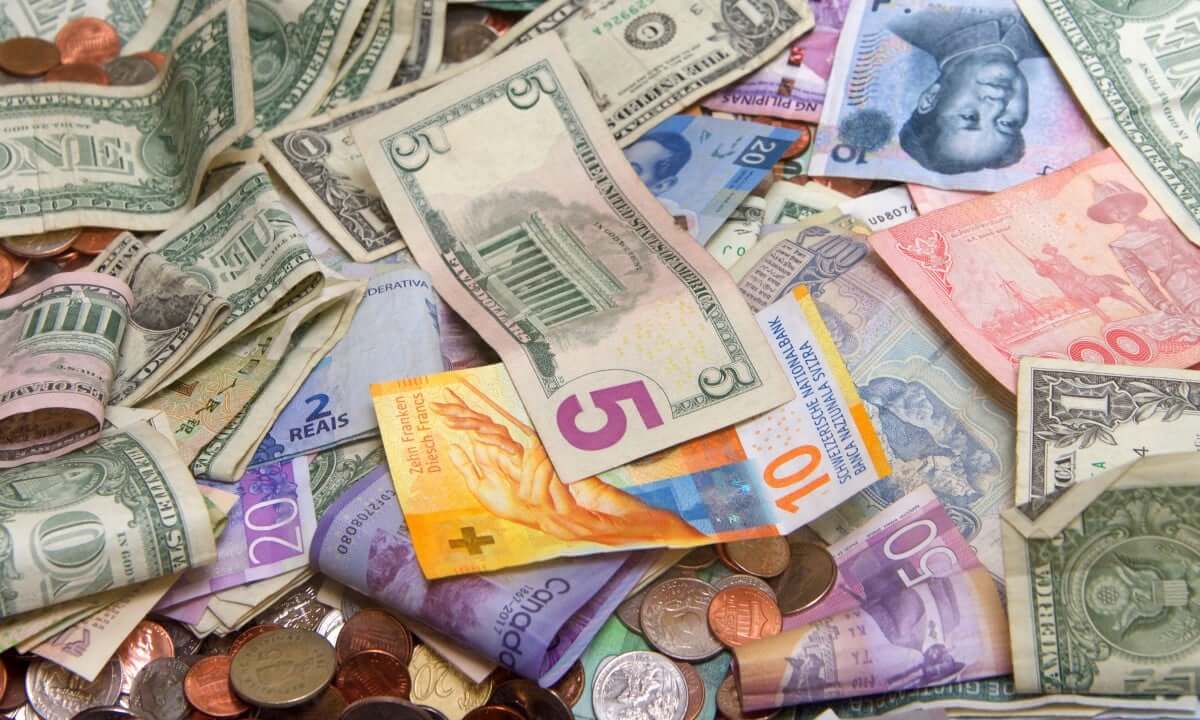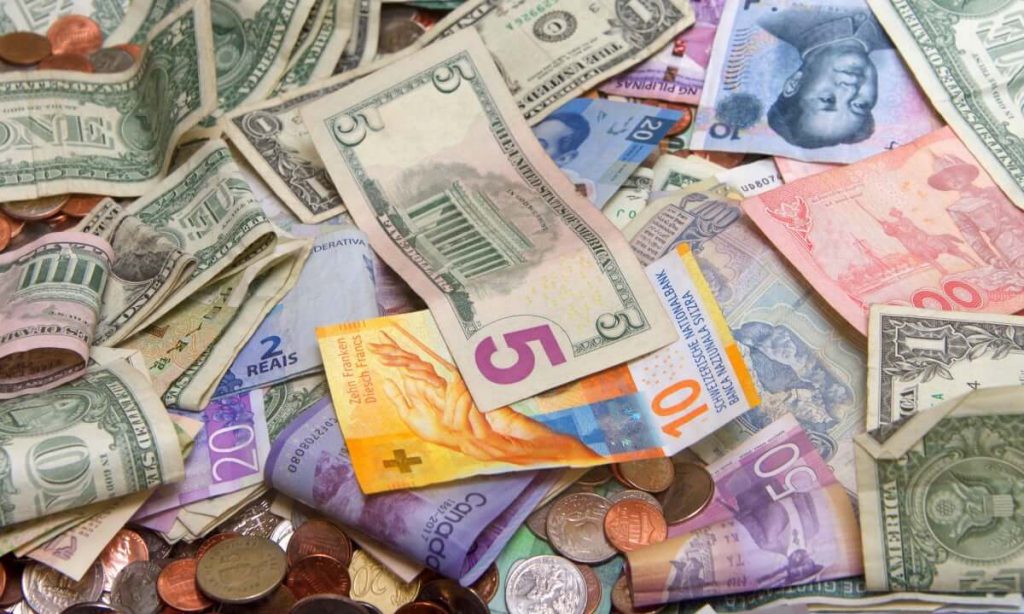
U.S. dollar edged up after a short decline. What about Euro?
The U.S. dollar climbed higher on Wednesday. However, it kept its index against major peers below a two-decade high reached two weeks ago. Traders are seeking safety in U.S. assets as stocks tumbled down globally due to the increased risk of a recession. The dollar index edged up by 0.067% to 104.54 against the basket of six rival currencies. Weakness in the euro overnight boosted the greenback. It had struck the two-decade high of 105.79 on June 15.
The U.S. currency maintained its strength despite U.S. 10-year Treasury yields declining by almost one percentage point in Tokyo trading. Bonds were in favor with investors due to the worsening risk sentiment.
Meanwhile, Asian equities dropped on Wednesday, following significant Wall Street losses overnight. A steep plunge in U.S. consumer confidence stoked concerns about an economic slowdown at a time when the U.S. Federal Reserve is rushing to hike interest rates. The agency wants to bring inflation under control. However, speculation about its possible course pushed equities lower.
The euro also shaved off 0.14% to $1.0506 after plummeting as low as$1.05025 on Tuesday. European Central Bank chief Christine Lagarde didn’t offer any hints about the path for European interest rates at the central bank’s annual forum on Tuesday. However, traders widely expect the ECB to follow its global peers by hiking interest rates in July for the first time in a decade. The bank would take that step to try to cool accelerating inflation. Still, economists remain divided on the magnitude of any increase.
Investors are waiting for news from the Fed and ECB
Fed Chair Jerome Powell and Lagarde will speak on a panel at the forum later today. According to Westpac strategists, the dollar index might stick to a range of 101 to 105 for now. They also added that the index is unlikely to hit high until the Fed’s front-loaded tightening cycle nears its ending.
Against the yen, the greenback dropped by 0.12% to 136.04 yen. The Japanese currency has even stronger safe-haven credentials than the USD. At the same time, the British Pound managed to gain 0.08% to $1.2194 on Wednesday. On the other hand, the risk-sensitive Australian dollar tumbled down by 0.09% to $0.68995.
In Asia, most currencies ended in the red today as weak U.S. consumer confidence data brought back worries about the recession. Despite the market mood, the Chinese yuan and Thai baht rallied thanks to China’s easing of visitor quarantine rules.
Moreover, the Philippine peso and Malaysian ringgit fell by 0.3% and 0.1%, respectively, versus the U.S. dollar. India’s rupee also declined by 0.3%. The currency hit another record low at 78.97 to the greenback after plunging to its previous trough on Tuesday.
The recent data showed that consumer confidence in the United States dropped to a 16-month low in June, with households concerned about soaring inflation and a subsequent economic slowdown. As a result, the U.S. dollar declined slightly for a while. The dollar index lowered by about 0.1% before rebounding. Despite that, Asian currencies were unable to benefit from that as risk appetite also took a hit.
How are the Chinese Yuan and other EM currencies faring?
The yuan gained 0.1% on Wednesday, while the Thai baht added 0.3% on the day. China announced about easing quarantine requirements for international visitors later on Tuesday. The government decreased quarantine time at centralized facilities to seven days. That helped the Chinese currency to buck the general weak trend.
Analysts at Maybank noted that this might be an indication that China is a bit more confident in living with coronavirus. Greater easing of the broad zero-Covid-19 strategy would also support the yuan.
Meanwhile, Krung Thai Bank markets strategist Poon Panichpibool attributed this move to market participants with long positions on the dollar-baht pair taking profits. However, other traders are beginning to short the pair. They are hoping for a brighter tourism outlook for Thailand.
Thus far, the World Bank maintained its economic growth forecast for Thailand unchanged at 2.9% for 2022, bolstered by tourism recovery and private consumption. But Thailand’s finance minister announced on Tuesday they expected a 3.5% growth.
South Korea’s won struggled along with its stocks as local consumer sentiment turned negative. High inflation expectations also didn’t help matters. Consequently, the won tumbled down by 0.8%, while stocks lost 1.4%, leading the underperformers in Asia.


